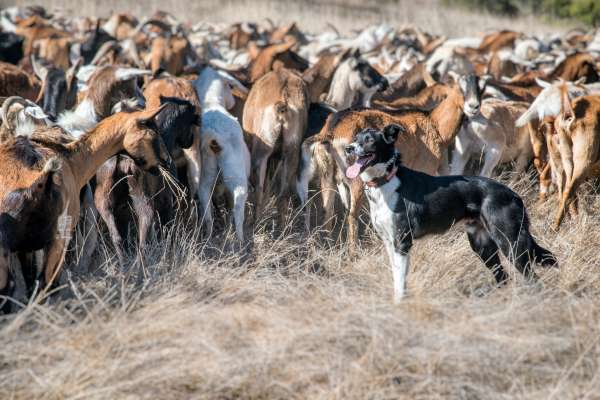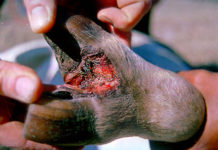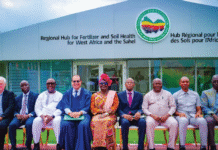As the world’s first domesticated animal, man’s best friend has been helping humankind for a long time. They serve as guides, protectors, detectors, and companions. And in modern-day Africa, they’re livestock guardians with a dangerous job: warding off predators like cheetahs and jackals. The role of dogs in African agriculture is to protect livestock, but they’re indirectly protecting the very carnivores they chase away.
Rising Tensions
Goats and cheetahs don’t mix. In Namibia, over 90% of the cats roam outside protected areas, leading to frequent conflicts with farmers. In response, farmers have resorted to killing cheetahs preemptively or in retaliation after the animals preyed on their sheep or goats.
Farmers often cannot identify the specific predator that ate their animals. Therefore, they may settle for shooting, spearing, or poisoning any member of the species that targeted their livestock, which may not even remove the problem animal.
Emotions run high when a carnivore preys on someone’s livestock, especially if the person’s livelihood depends on farming. Anger and fear of further losses can prompt a mass slaughter of carnivores. Most people won’t admit to doing this, so researchers aren’t sure how many people use lethal predator control.
This is unsustainable in the long term. Carnivores are essential to an ecosystem, keeping the population of prey animals in check.
Famously, when people eradicated wolves from Yellowstone National Park in 1926, it set off a cascade of environmental chaos with riverbanks collapsing, songbirds dying off, and elk eating every plant they could find. The wolves’ reintroduction in 1995 restored balance to the park.
Worldwide, carnivore populations are declining as humans kill them to protect livestock, safeguard themselves, and poach the animals for traditional medicine ingredients, which have no actual health benefits. Overall, the number one reason people kill predators is to protect crops and livestock.
Born to Protect
There’s a simple solution to this. Dogs such as Anatolian Shepherds, Great Pyrenees, and indigenous Tswana dogs in Botswana were specifically bred to guard animals and will establish themselves as a member of the herd from a young age. These dogs love the outdoors, are independent thinkers who shirk traditional obedience lessons and are fearless in the face of danger. They live to protect.
Their independent nature might make them less eager to please, but that quality is exactly what lets the dogs think fast and make snap decisions to protect their herd. The best part is that they don’t need to kill predators to keep them at bay. They establish a territory by patrolling, barking, and chasing away any intruders, protecting both the livestock and carnivores that prey on them.
This sustainable farming practice is exciting news for conservation. African farmers who adopt these livestock guardian dogs – LGDs, for short – see an average 91% reduction in livestock losses.
Usually, sheep and goats are most in need of protection, but farmers also use LGDs to keep an eye on cattle. Black-backed jackals, caracals, hyenas, leopards, lions, and even baboons are known to prey on livestock, so the dogs have a big job to do.
LGD puppies are usually introduced to their herd at a young age so they can establish a strong bond. They live outside full-time. Most livestock guardian breeds have a thick coat, which makes them tough enough to handle any type of weather, but farmers often provide a doghouse for shade and shelter from the rain.
Along with rounding up livestock into a pen at night – a practice called kraaling – farmers who adopt LGDs are experiencing great success in keeping their animals safe.
A Nonlethal Deterrent
Livestock guardian dogs have proven to play an essential role in African agriculture. As a natural predator deterrent, these tough canines defend livestock without a second thought, chasing away carnivores that farmers otherwise might resort to killing. This makes them an invaluable asset to wildlife conservation in Africa.

Jane is an agriculture and environmental journalist and the founder and editor-in-chief of Environment.co, where she covers sustainability and eco-friendly living.










[…] Source link […]
[…] Source link […]
Comments are closed.